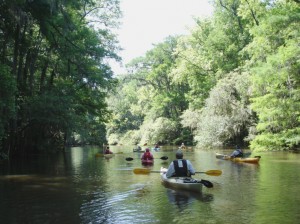I was encouraged by a recent press release from the North Carolina Wildlife Federation. The release stated, “In a show of force and unity, over 100 North Carolina sporting groups are calling on the General Assembly to restore critical funding for conservation. The groups, ranging from venerable statewide wildlife, turkey, waterfowl, deer, bear hunting organizations to trout, bass and local rod and gun clubs, are seeking investments in land, water and wildlife infrastructure in what amounts to less than 0.5 % of the entire budget.”
These groups representing Trout Unlimited Chapters, Wild Turkey Federation Chapters, Quality Deer Management Associations, NC Ducks Unlimited plus scores of other sportsman/sportswoman organizations across the state are all signers on a recent letter to North Carolina’s General Assembly. Here are some excerpts from that letter:
“We are hundreds of thousands of dedicated sportsmen and women from North Carolina. We span political parties and ideologies. We are bird hunters and waterfowlers, trout and bass anglers, hunters and trappers. What we share is a deep-rooted passion and concern for conservation and our sporting heritage.”
“The country’s original conservationists, hunters and anglers, are still on the forefront of conservation. Our dollars spent on licenses, gear, and associated expenditures such as travel, bait and tackle, meals, and lodging has a tremendous impact on the state’s economy. According to the most recent survey of the USFWS about the economic value of fish and wildlife based recreational activities, we contributed $4.3 billion to the state’s economy while supporting over 46,000 jobs.
“For years, the General Assembly has recognized sportsmen’s economic input and commitment to fish and wildlife resources by fully funding the state’s four conservation trust funds. Now conservation funding has been cut by a disproportionate 90 percent. Fiscal responsibility is important, but it doesn’t mean abandoning successful programs that have protected tens of thousands of acres of game lands, wetlands, fishing habitat and farmland across the state.
“In order to effectively safeguard key components of our economy, the sports and traditions that North Carolinians enjoy, and the health and integrity of some of our most important natural resources, it is essential that you restore a portion of these critical funds for the wild places that sustain our sporting heritage and economic impact.
“This request comes to less than a half percent of the state budget, but the payoff is enormous. For every dollar invested the state receives at least $4 of natural goods and services such as drinking water protection, flood control and cleaner air. When you add in the associated benefits for our $22 billion a year travel and tourism and $32 billion agricultural industries, it is clear that conservation is crucial to our economy. Please support this major economic driver by:
- Restoring funding for the Clean Water Management Trust Fund (CWMTF) to $40 million, still well below historic levels.
- Removing the general prohibition on the use of CWMTF funds for land acquisition.
- Maintaining the dedicated revenue source for the Natural Heritage Trust Fund and Parks and Recreation Trust Fund, and oppose any diversion of those funds.
- Funding the Agricultural Development and Farmland Preservation Trust Fund at $2 million.”
When traditional environmental groups like Audubon NC, Southern Environmental Law Center, Western North Carolina Alliance, NC Sierra Club and others decried the Republican assault on the environment in North Carolina’s General Assembly and penned a letter to Governor Bev Perdue thanking her for vetoing S781 and S709 (both of which, I believe, have been overturned) it was easy for Republican lawmakers to rant about “tree huggers” and “environmental whackos.”
But when members of the General Assembly look at this wide ranging and broad base of support, marshaled by the NC wildlife Federation (who, by the way, was also a co-signer on the letter to Perdue) that crosses all party lines and ideologies perhaps they will see that all North Carolinians treasure North Carolina’s wild places.

